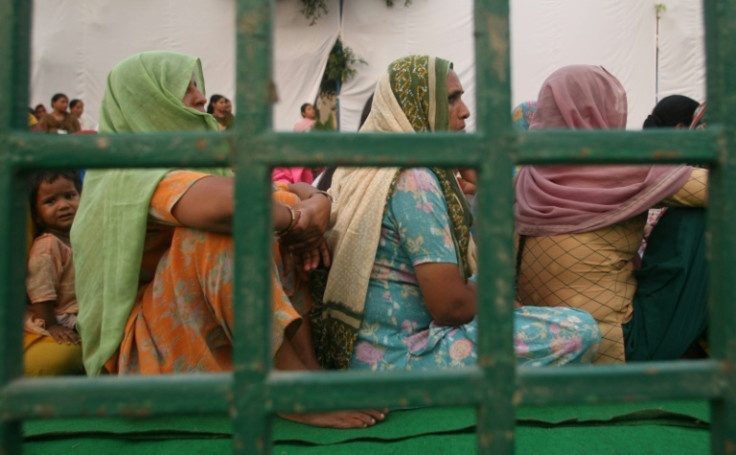A Spark of Bravery: How Indian Women Ended a Serial Rapist's Reign of Terror
Children and pregnant women were not excluded from Akku Yadav's crimes

In August 2004, a group of 200 to 400 women stabbed a man to death in a prestigious courthouse in Nagour, India. The women were residents of the Kasturba Nagar slum, located on the edge of the Maharashtra district of central India.
On August 13, 2004, eyewitnesses watched the organised killing of 32-year-old gangster, Akku Yadav, as a large group of women carried knives, large stones and cooking powders through the streets.
Yadav was known for terrorising the residents of the Kasturba Nagar slum since the 1990s. He was an extortionist, a killer and a serial rapist who would kidnap women from their homes to conduct heinous acts of sexual violence. His reign of terror had the entire community paralised.
Children stopped going to school, women refused to step out of their homes, and no one would dare visit Kasturba Nagar just because Yadav would rape, beat, and torture anyone and everyone because he simply could.
Pregnant women and girls as young as 10 weren't spared either. Residents were too afraid to do anything in fear of retaliation, especially since they had tried reporting his crimes to the police, which fell on deaf ears.
He, reportedly, bribed local enforcement with money and drinks thus securing his place as an "untouchable" criminal.
After over a decade of violence, the women fight back...
It was only when Yadav wanted to kill a woman named Usha Narayane for helping another woman file a rape case against him, that the winds of change began blowing. Yadav and his hooligans surrounded her home and demanded to be let in.
Instead, Narayane dragged out a cooking gas cylinder and turned on the valve. She threatened them with a simple spark from a match which would be enough to not only kill herself but everyone else within the proximity of her home. Upon seeing this, Yadav and his goons retreated. This gave courage to the other residents to finally take up arms and to chase the serial rapist down.
A manhunt was called for him by the frustrated and angry residents which lasted a few days. Yadav finally surrendered himself to the police, where he was arrested but hopeful that he would be safe under their protection.
He was set to attend a bail hearing in India's Nagpur District Court. Despite his decade long criminal spree, word spread that Yadav may be released by the court. It was then that the women of Kasturba Nagar, frustrated with the seemingly useless justice system and police force, decided to take matters into their own hands.
While Yadav was attending his bail hearing, an overwhelmingly large group of people barged into the courtroom and began attacking Yadav with chilli powder, stones and vegetable knives.
The attack resulted in Yadav being stabbed more than 70 times, while police officers and court officials fled the scene. The crowd of women also sliced off the then 32-year-old's penis and ears.
Usha Narayane and 21 others were arrested and eventually released due to lack of evidence.
Nowadays, Narayane works with the Clinton Global Initiative and the National Institute for Women, Children, and Youth Development on a program called the "Kasturba Nagar Community Project". It is a three-year program that trains both men and women in industries such as IT, manufacturing, catering, cooking and more.
It's been years since the women of Kasturba Nagar put an end to a serial rapist's end of terror, but crimes against women in India are still in high numbers. Reports reveal that in 2023, there was a total of over 28,000 reports of women being harassed, battered, molested, rape, honour killed and more. This, apparently, is an improvement versus the 30,864 crimes reported in 2022.
© Copyright IBTimes 2025. All rights reserved.





















